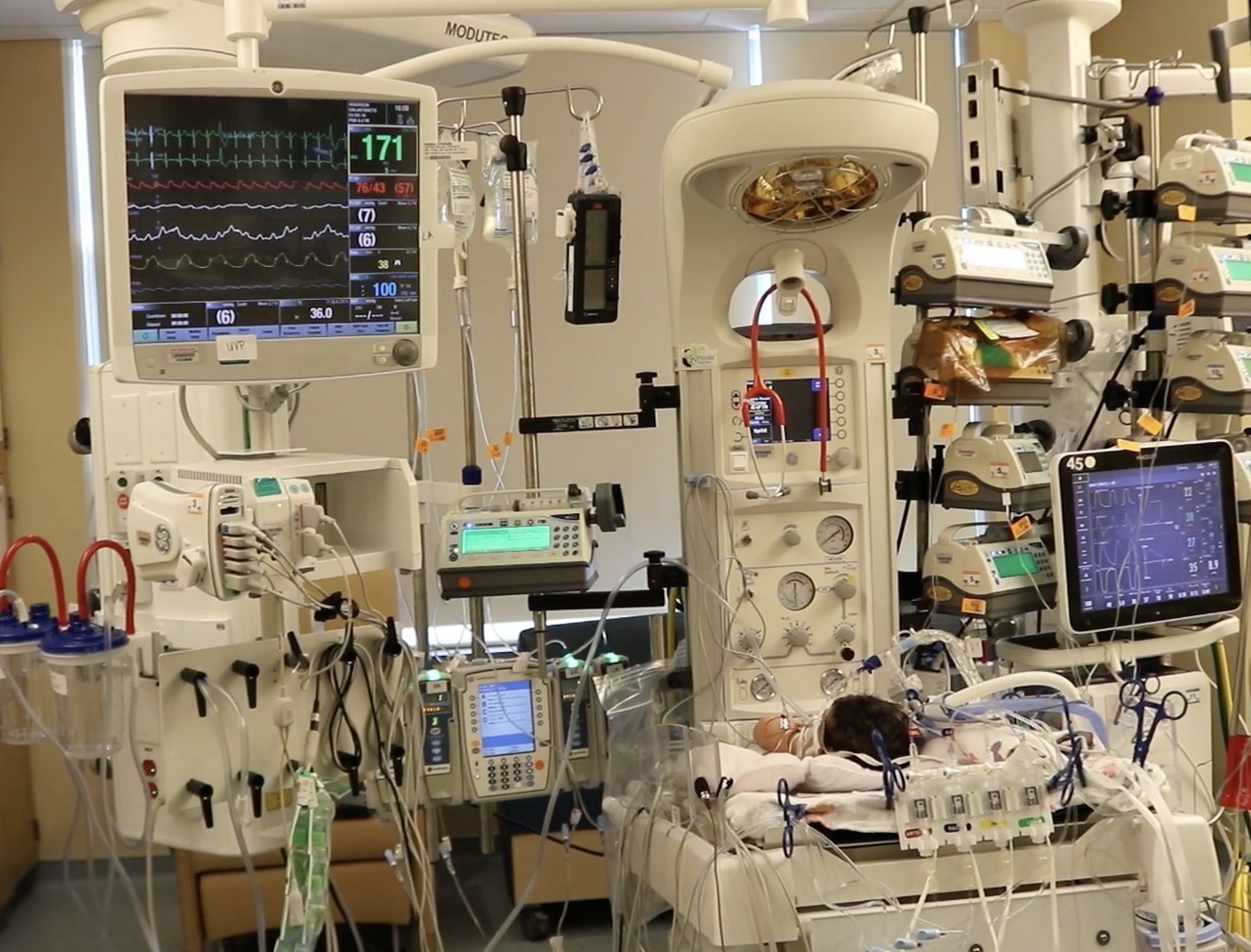Pleural Drainage, Clinical Characteristics, and Management Strategies in the Perioperative Fontan Patient: A Multicenter Report
Duran SR, Winder M, Reeder RW, Plummer ST, Sznycer-Taub N, Savoca M, DiMaria MV, Gordon EE, Bhaskar P, Raymond TT, Das A, Tortorich A, Lyman A, Bertrandt RA, Kozyak BW, Frank DU, Greiten LE, Bailly DK and Lay AS
Prolonged pleural drainage and chylothorax are common in postoperative Fontan patients and are associated with increased morbidity and mortality. Multiple medical and interventional treatment strategies exist and vary between centers. This is a retrospective multicenter observational cohort study of pediatric patients who underwent Fontan operation at 8 pediatric cardiac surgical institutions from 1/1/2019 to 12/31/2021. Data were obtained from institutional records and collected from the Pediatric Cardiac Critical Care Consortium (PC). 185 patients underwent Fontan operation with median age of 3.8 years [IQR 3.2-4.5]. Chest tube drainage for > 14 days occurred in 40 patients (22%). Chylothorax occurred in 33 patients (18%, incidence 9.1-26.2% across centers). Compared to non-chylothorax patients, those with chylothorax had lower preoperative ventricular end diastolic pressures (8 vs. 9 mm Hg, p = 0.019), greater chest tube utilization (13 vs. 7 days, p = < 0.001), ICU LOS (7 vs. 4 days, p = 0.001), hospital LOS (12 vs. 9 days, p < 0.001), and more weight loss (- 2.7% vs. 0.8%, p = 0.019). Using a receiver-operating characteristic curve, chest tube output > 18.8 mL/kg/day on POD 2 predicted chylothorax with an AUC of 0.73. Common chylothorax treatments were diet modification (n = 15, 45%) and sildenafil (n = 14, 52%). Interventional procedures were used in six chylothorax patients (18%). Postoperative chylothorax in Fontan patients was associated with increased chest tube utilization, postoperative interventions, greater weight loss, and longer ICU and hospital LOS. Center level variation suggests outcomes and resource utilization could be improved with further studies and establishment of best practices.
Best practice peri-extubation bundle reduces neonatal and infant extubation failure after cardiac surgery
Todd Tzanetos D, Bassi H, Furlong-Dillard J, Mastropietro C, Olive M, Klugman D and Werho D
Extubation failure after neonatal cardiac surgery is associated with increased intensive care unit length of stay, morbidity, and mortality. We performed a quality improvement project to create and implement a peri-extubation bundle, including extubation readiness testing, spontaneous breathing trial, and high-risk criteria identification, using best practices at high-performing centers to decrease neonatal and infant extubation failure by 20% from a baseline of 15.7% to 12.6% over a 2-year period.
Practice variation in therapeutic hypothermia for hypoxic ischemic encephalopathy among neonates with congenital heart disease in the United States
Chawla V, Peluso AM, Ball MK, Tabbutt S, Bailly DK, Mueller D, Rao R, Levy PT and
Unplanned reinterventions after congenital cardiac surgery and hospital mortality: A report from the Pediatric Cardiac Critical Care Consortium (PC)
Reddy RK, Schumacher KR, Ghanayem NS, Zhang W, Mikesell K, Alten JA, Bailly DK, Bertrandt RA, Blinder JJ, Buckley JR, Chan T, Chanani NK, DeWitt AG, Diddle JW, Gauntt J, Harmon WG, Jacobs JP, Kelly RB, Lin JI, Lion RP, Raymond TT, Riley CM, Schwartz SM, Shin AY, Simsic JM, Sinha A, Smith AH, Tabbutt S, Werho DK, Zaccagni HJ and Costello JM
Unplanned cardiac reinterventions after congenital cardiac surgery may complicate the postoperative course. We sought to identify incidence rates and risk factors for unplanned cardiac reinterventions and associations between unplanned cardiac reinterventions and hospital mortality.
Ventilator Liberation Practices in Pediatric Cardiac Critical Care
Romer AJ, Abu-Sultaneh S, Gaies MG, Klein RV, Mastropietro CW, Todd Tzanetos DR, Werho DK, Zaccagni HJ and Loberger JM
Mechanical ventilation is common in critically ill children with cardiac disease, but literature focused on ventilator liberation practices for this unique pediatric subpopulation is limited. We aimed to describe current ventilator liberation practices in critically ill children with cardiac disease. Through the Pediatric Cardiac Critical Care Consortium, an electronic survey was distributed to pediatric ICU attending physicians caring for patients with cardiac disease evaluating institutional protocols and individual practices around ventilator liberation including criteria for extubation readiness testing (ERT), ERT components, spontaneous breathing trial (SBT) method and duration, timing of extubation, and postextubation respiratory support. We received 133 responses representing 47 hospitals. ERT eligibility screening and SBT protocols were reported at 22 (47%) and 26 (55%) of the 47 institutions, respectively. Most respondents used SBTs in their assessment of extubation readiness (95%) and pressure support augmentation to CPAP for SBT (92%). Most respondents reported a maximum dose threshold for epinephrine (81%), above which they would not extubate. Some indices used for determination of extubation readiness were used by nearly all respondents: pulse oximetry (92%), serum lactate (86%), and arterial pH (85%); but some respondents also report using mixed venous saturation (68%), ventricular function (62%), near-infrared spectroscopy (62%), and systemic atrioventricular valve regurgitation (53%). Reported use of noninvasive respiratory support (NRS) after extubation was common, up to 90% in selected subgroups. There was wide variation in the type of NRS used in all populations. ERT eligibility screening and SBT protocols were reported in only half of the institutions surveyed, and notable variation exists between parameters surrounding extubation readiness assessment and postextubation respiratory support. These data suggest opportunities to increase protocol development to align with established clinical practice guidelines around ERT and conduct multi-center quality improvement to identify best practices for ventilator liberation in this patient population.

